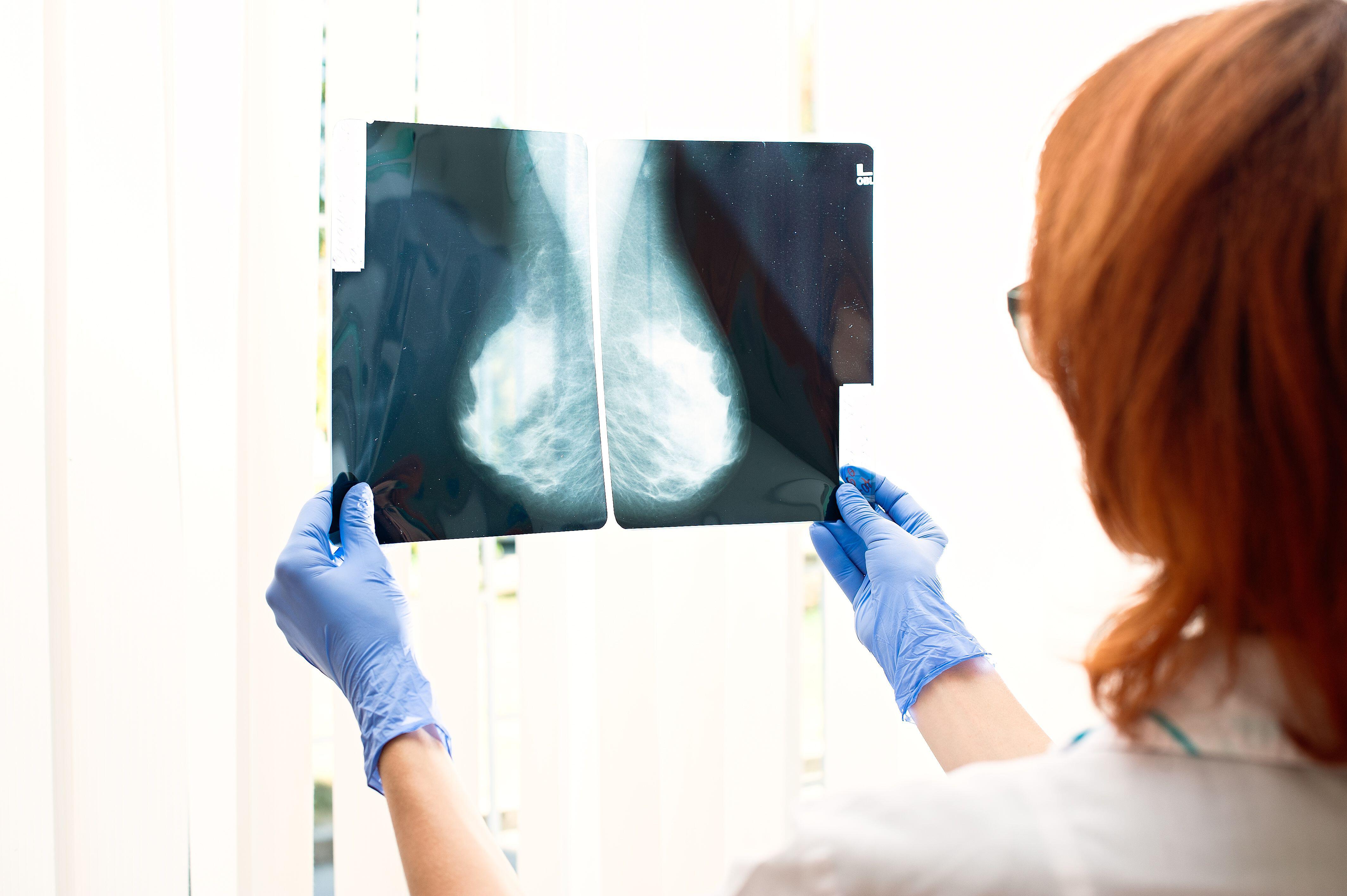Drug slashes risk of death for women with high-risk breast cancer by 32%
The drug, which is taken as a pill, has already been approved in the US and is currently being assessed for use in the UK and on the NHS.

Your support helps us to tell the story
From reproductive rights to climate change to Big Tech, The Independent is on the ground when the story is developing. Whether it's investigating the financials of Elon Musk's pro-Trump PAC or producing our latest documentary, 'The A Word', which shines a light on the American women fighting for reproductive rights, we know how important it is to parse out the facts from the messaging.
At such a critical moment in US history, we need reporters on the ground. Your donation allows us to keep sending journalists to speak to both sides of the story.
The Independent is trusted by Americans across the entire political spectrum. And unlike many other quality news outlets, we choose not to lock Americans out of our reporting and analysis with paywalls. We believe quality journalism should be available to everyone, paid for by those who can afford it.
Your support makes all the difference.A drug has been shown to slash the risk of death for women with high-risk breast cancer by 32%.
Experts described the findings as “hugely exciting”, increasing the chance that those with BRCA 1 and 2 early-stage cancer can remain disease-free and potentially be cured.
Lynparza (olaparib) has already been shown to cut the chance of this type of inherited cancer spreading, but the new finding shows the risk of death is also reduced by a third.
The BRCA mutation is what led US actress Angelina Jolie to have a preventative mastectomy to cut her chance of developing cancer.
The new data on Lynparza, which included follow-up on patients for four years, is being presented at the European Society for Medical Oncology congress.
This breakthrough is testament to the outstanding work of world-class researchers
Dr Simon Vincent, director of research, support and influencing at Breast Cancer Now, said: “It’s hugely exciting this research shows olaparib could save lives and prevent recurrence in some women and men living with primary breast cancer with an inherited altered BRCA gene, often known as the ‘Jolie gene’.
“This breakthrough is testament to the outstanding work, over the last 20 years, of world-class researchers – including many UK researchers funded by Breast Cancer Now – who have uncovered weaknesses in breast cancer cells and laid the foundations for this discovery.”
The drug, which is taken as a pill, has already been approved in the US and is currently being assessed for use in the UK and on the NHS.
AstraZeneca, which manufactures the drug with MSD, has an early access scheme which allows patients to get the drug via their doctor while it goes through the approval process.
Researchers on the OlympiA trial studied 1,836 patients with HER-2 negative breast cancer who also had a mutation in their BRCA1 or BRCA2 genes and who had undergone standard treatment, including surgery, chemotherapy, hormonal therapies and radiotherapy.
The patients, who were recruited at hundreds of locations around the world, were randomly allocated to receive either 300mg twice a day of olaparib or a placebo for one year, and are still being followed up several years later.
This is a major step forward in treatment of early-stage inherited breast cancer
Professor Andrew Tutt, from the Institute of Cancer Research London (ICR), was chairman of the steering committee for the study, and also involved in early laboratory research on this type of drug.
Olaparib targets the specific biology of the BRCA genes, killing cancer cells while leaving healthy cells alone. It also works as a treatment for some patients with advanced ovarian, breast, prostate and pancreatic cancer.
Prof Tutt said: “Today’s results are great news for many women with inherited breast cancer.
“Most breast cancers are identified in the early stages and many patients will do very well, but for some, the risk of cancer returning remains unacceptably high, even after chemotherapy.
“OlympiA has shown that after selecting women with inherited BRCA mutations through genetic testing, we can use olaparib to directly target the weakness in their cancer and improve their survival.
“I hope to see BRCA1 and BRCA2 testing used for more women diagnosed with early-stage breast cancer, so that we can determine who can benefit from this personalised treatment approach.
“Olaparib provides a much-needed new individualised and targeted treatment option to keep more women with inherited breast cancer free of disease and alive and well after their initial treatment.”
Professor Kristian Helin, chief executive of the ICR, said: “This is a major step forward in treatment of early-stage inherited breast cancer.
“Olaparib has major benefits for this group of patients, increasing their chances of remaining cancer-free and potentially being cured after initial treatment.
“We hope olaparib will now be licensed in Europe and approved in the UK for NHS patients without delay.”
BRCA 1 and 2 cancers account for around 5% of all breast cancers but can be particularly deadly.